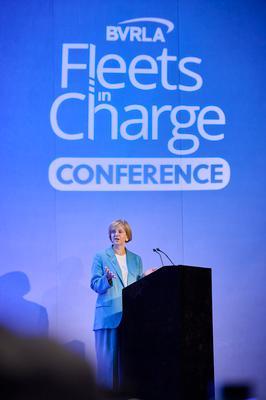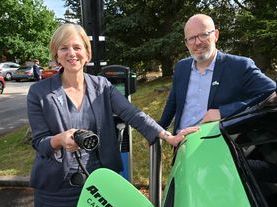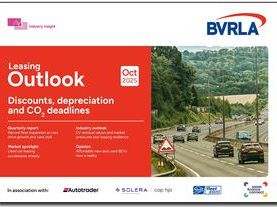Progress along the UK’s Road to Zero remains in the balance. Growth in chargepoint numbers and the availability of new electric vehicles is being offset by freefalling used vehicle values and fiercely expensive public charging costs. The assessment comes out of the BVRLA’s annual Road to Zero Report, which explores decarbonisation progress across vehicle supply, demand and infrastructure.
Toby Poston, BVRLA Chief Executive, said: “The UK’s transition to a zero-emission future is in its most challenging period. On the plus side, corporate demand for electric cars remains solid and salary sacrifice schemes continue to democratise access to EVs for hard-to-reach demographics.
“Offsetting that positivity is what’s happening in the used market. Used EV values are falling relentlessly, destroying value on an epic scale. This death by a thousand cuts is costing fleets hundreds of millions of pounds and eroding confidence across our industry. We know the Government is listening. The £1.8bn committed to support EV uptake last month could make a difference, and we’ll continue to work with government to highlight how this money can achieve the best return on investment.”

The updated Road to Zero Report was launched as part of the BVRLA’s annual Fleets in Charge Conference. There, delegates also heard from Minister for the Future of Roads, Lilian Greenwood MP, who outlined where the Government is taking steps to support road transport decarbonisation.
Future of Roads Minister Lilian Greenwood said: “Transport is the engine of our economy and its success is key for delivering our climate and growth missions. The transition to zero emissions cars, vans and HGVs, brings huge opportunities to futureproof our world class automotive and logistics sectors and secure the long-term sustainable growth this country needs.
“I welcome BVRLA’s Road to Zero report and look forward to continuing to work alongside industry on this journey to deliver our joint goal of a greener and more prosperous future.”
The Road to Zero Report, produced in association with Ricardo, presents hard data supported by expert analysis and commentary.
In addition to status updates for the respective progress of cars, vans, and trucks, the Road to Zero Report puts the spotlight on a trio of developing trends impacting the UK’s progress.
- Destination charging: A lack of chargepoints at destinations such as hotels and leisure venues is a significant “unseen” barrier to EV adoption.
- Affordable car models under £25k: The affordability challenge appears to be being met with 12 models now available for under £25,000 as of May 2025, although still lagging the 26 petrol or diesel ICE models in the same price range.
- Used BEV Market Incentives: The UK market for used EVs is performing worse than in other European countries. The average used EV price has fallen 46% between 2021 and 2024, compared to 19% for ICE.
Overall, the 2025 report shows how targeted incentives are continuing to support electric vehicle adoption via leasing, be that personal or business. Where comparable incentives are not available – such as in the rental sector or among van users – progress remains slow. Further still, utilisation rates of electric vehicles in the rental sector have decreased year on year, underlining how challenging the transition is in that part of the industry.
With charging often cited by drivers and operators as a key barrier to transition, the Report Card shows that deployment of chargepoints continues to progress on the exponential curve required to reach 300,000 by 2030. Through its Bon VoyCharge campaign this summer, the BVRLA is highlighting that an effective charging network is not just about the number of chargepoints in the ground, but matching the speed and accessibility with the key use case in a given location.
The Road to Zero Report is available in full via the dedicated RoadToZero.co.uk website.
ENDS



